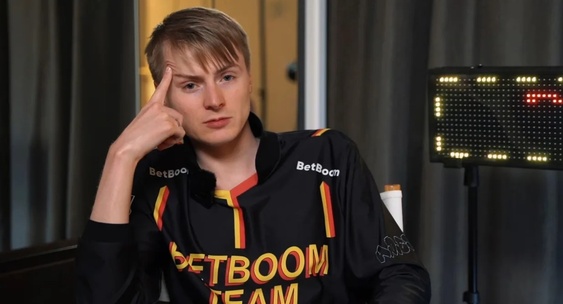Following BetBoom Team`s departure from the Riyadh Masters 2025 Dota 2 tournament, head coach Anatoly “Boolk” Ivanov offered a frank assessment of their performance, particularly their decisive loss to Tundra Esports in the quarterfinals. His insights provide a rare glimpse into the strategic and psychological battles waged behind the screens in top-tier esports.
The First Map`s Unraveling: When `Dota` Ceased to Be
The quarterfinal clash against Tundra Esports proved to be a nail-biter, ultimately concluding with a 1:2 defeat for BetBoom Team. Boolk pinpointed a pivotal moment in the first game that he believes derailed their efforts: a crucial Roshan fight where Tundra not only secured the Aegis but effectively “broke” BetBoom Team`s resolve. “We just stopped playing `Dota` after that,” Boolk stated, acknowledging the psychological impact of losing such a critical objective.
Beyond the stolen Aegis, Boolk admitted to a general disorientation on the map and a lack of proficiency with certain hero compositions, notably Broodmother. The team`s decision to engage in a lane swap during the first map also came under scrutiny. According to Boolk, Tundra Esports initiated the swap, prompting BetBoom Team to counter-adjust, ensuring their lane expectations from the draft were met rather than playing into the opponent`s desired conditions.
Between Games: A Quest for Stability
The inter-game break, often a crucible for mental fortitude and strategic recalibration, saw BetBoom Team engaging in intense discussion. Boolk revealed that the focus wasn`t on dwelling on the defeat but on pragmatic next steps. “We perfectly understood why we lost,” he explained. The conversation quickly shifted to drafting strategies, particularly identifying their priority picks and compositions they would explicitly avoid. This pragmatic approach was born from past experiences: BetBoom Team has, on multiple occasions, found themselves losing two consecutive maps after winning the first, a pattern they were desperate to break. “Nothing special,” Boolk humbly concluded about the team`s huddle. “We just needed to keep playing `Dota`.”
The Double-Edged Sword of Downtime: A Week-Long Gamble
One recurring theme in Boolk`s reflections was the impact of the week-long hiatus between the Riyadh Masters group stage and the playoffs. Such extended breaks, he observed, can be a blessing or a curse. Teams in peak form might lose their momentum, while struggling teams could use the time for a resurgence. Boolk highlighted a key strategic challenge: “During such a long break, opponents are able to prepare for all your heroes and have many answers.” This forces teams like BetBoom to constantly adapt their drafts, potentially diverging from their comfort zones.
For BetBoom Team specifically, Boolk believes the break was detrimental. “Knowing the specifics of the people in the team – yes,” he candidly responded when asked if the pause negatively impacted their performance. It suggests an internal dynamic where consistency, rather than extended preparation, might be their stronger suit.
The “Insane Things” Conundrum: A Recurring Narrative?
Perhaps the most poignant of Boolk`s observations touched upon BetBoom Team`s penchant for high-risk, high-reward plays – the “crazy things” like fountain dives or aggressive engagements that define their exciting, yet sometimes self-destructive, style. With a hint of weary irony, Boolk reflected on a repeating pattern: “As you can see, for the third year in a row, we are eliminated from tournaments on pretty insane things, so draw your own conclusions.”
This statement encapsulates a critical dilemma for BetBoom Team: is their aggressive identity a strength that needs refinement, or a fundamental flaw that consistently leads to their undoing at crucial moments? It implies a need for introspection beyond mere draft adjustments, perhaps a re-evaluation of their core strategic philosophy.
BetBoom Team`s journey at Riyadh Masters 2025 concluded with a 5th-8th place finish, earning them $125,000. While the prize money offers some consolation, Boolk`s post-elimination thoughts suggest a deeper conversation is needed within the team. Their recurring patterns of mid-series slumps and high-stakes gambles present a complex challenge, one that will undoubtedly shape their approach to future Dota 2 tournaments.

